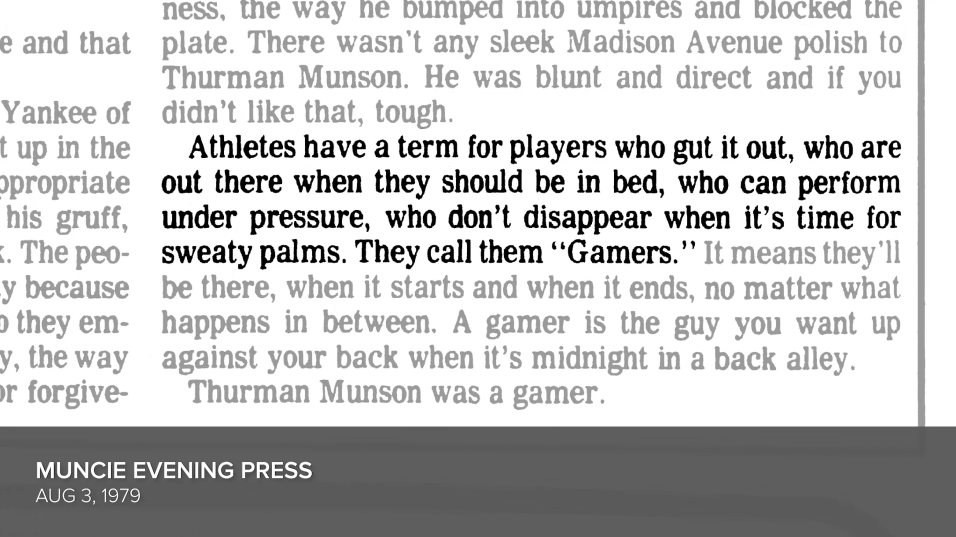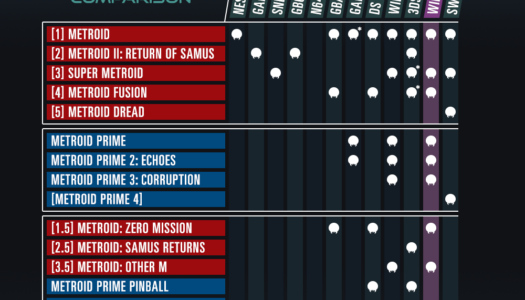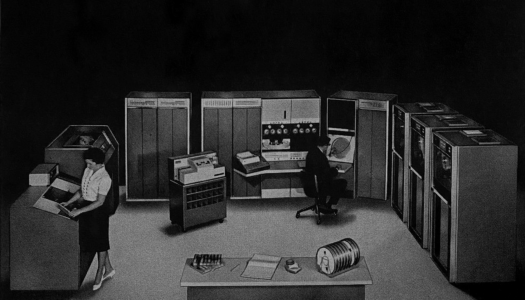The Origin Of The Term “Gamer”
The term “gamer” predates video games by over six centuries.
The first known record of the word was found in the English town of Walsall and dates back to approximately 1422. The town’s Code of Laws, written in Middle English, condemned “any dice-player, carder, tennis player, or other unlawful gamer.”
Back then, even tennis and football were considered forms of gambling, and thus were banned on any day but Christmas. And then they banned Christmas.
But my point is, when they said “gamer,” what they meant was “gambler.” And this association lasted well into the 19th century. For example, in 1845 a short story about card players declared:

But this form of “gamer” was never adopted in the US, where it came to be associated with other pastimes.
Gamers In The US
War games were originally created as a military tool to study tactics and strategy. But by the 1950s, recreational war gaming was becoming popular enough to support commercial releases. Hobby publications soon followed.
War Game Digest was launched in 1957 by Jack Scruby, a manufacturer of miniatures. In the foreword of his first issue, Scruby referred to his readers as “war game enthusiasts,” “war game generals,” “war game players,” and most significantly, “war gamers.” This last phrase quickly caught on, and by the end of the ‘60s, it was frequently shortened to just “gamer.”
When TSR released Dungeons & Dragons in the ’70s, it was initially branded as a wargame. It was eventually redefined as a role-playing game, but not before TSR attempted to redefine “gamer” itself:

But this wasn’t the only game laying claim to the name. Saturday’s Children dramatized the 1971 season of Rice University’s college football team. At one point, the coach monologues:

A few years later, sports journalist Bill Lyon provided a contradictory definition.

The Dickson Baseball Dictionary embraced this latter definition, describing a gamer as “a player who approaches the game with a tenacious, spirited attack and continues to play even when hurt.” They speculated the etymology came from “the idea of a player who is ‘game.’” This is the definition that was first picked up by Merriam-Webster later in the ’90s. Strangely, it was attributed to 1630, though they’ve since corrected that.
So how did “gamer” come to mean “a player of video games?” Let me tell you a little story. It begins in the world of fanzine fandom…
From Fanzines To Electronic Games
Before the internet, fanzines were how fans expressed themselves.
Arnie Katz and Joyce Worley met in science fiction fandom in the ’60s. When Joyce moved to New York City in 1970, the two became a couple, and began hosting meetings of a fanzine group.
Bill Kunkel and Charlene Komar met in high school in the ’60s. In 1971, Joyce & Arnie invited them to the fanzine group. In 1972, they invited Joyce & Arnie to their wedding.
In 1973, Pong arrived on the East Coast, and the two couples discovered their shared interests went beyond just science fiction. In 1974, they teamed up to produce a pro-wrestling magazine. By 1975, Main Event had its own late night radio show, and the magazine was being considered for newsstand distribution. But complications prevented them from taking it all the way and quitting their day jobs.
Arnie’s day job involved writing for trade magazines, which actually paid better than consumer magazines back then. He was the first of the four to get a gig writing professionally.
Then, at the end of 1976, Bill started writing for DC Comics. He also did jobs for Marvel and Harvey, but he was struggling to turn comics into a steady gig. Little did he know he would soon be making video game history.
In 1978, Magnavox introduced the Odyssey 2. Bill & Charlene owned the original Odyssey and were looking to upgrade. But there was also the Atari Video Computer System which launched the previous year. The four of them conspired that if Joyce & Arnie bought the latter and Bill & Charlene bought the former, they could — in theory — play ALL the games.
In the meantime, they teamed up once again on an unusual fanzine called Four Star Extra where the topic changed every issue. Bill likened it to a writer’s boot camp that helped prepare them for what was to come.

A consumer magazine called Video appeared on the newsstands during the Christmas season of 1977. It covered all the latest TV gadgets, including video games. In 1979, Bruce Apar became the magazine’s new editor. Arnie knew Bruce from the trade magazine world, and pitched a few ideas.
Before long, they were all contributing. Arnie wrote a column about television programming. And Bill had a column called “Arcade Alley” that — contrary to the name — focused on home video games. Bill’s collaborator, Frank T. Laney the second, was actually a pseudonym for Arnie, a tribute to his favorite deceased fanzine author.
Together, Bill & Arnie wrote about games in a way no one had ever done before. They opened with a mission statement:

Previous attempts at video game reviews had read like consumer reports, analyzing performance, dimensions, picture quality, and other purely objective considerations. The games themselves were treated as an afterthought, like just another feature of the hardware. Individual game reviews were simply a brief description and a score.
But Bill & Arnie treated video games the same way they’d treat movies or music, experiences that tend to be more subjective than using a home appliance. In this moment, Bill & Arnie created games journalism.

Then, in 1981, “Arcade Alley” spun off into Electronic Games, a magazine co-founded by Bill & Arnie with Joyce. Charlene had split up with Bill during the summer, but the two remained friends, and Charlene became a freelance contributor the following year.
Joyce also edited a supplementary newsletter covering breaking news updates. And Charlene edited the official magazine for Gameline, a short-lived internet service for the Atari that was a precursor to QuantumLink, which later became America Online.
Dancing About Arcade Texture
Electronic Games and “Arcade Alley” laid the groundwork for how we talk about video games, including the words we use. Though, in the spirit of the English language, most of the words were borrowed from elsewhere.
Admittedly, most of the words were borrowed from elsewhere, but such is the nature of the English language.
For example, “easter eggs” have existed for centuries, but the first time the term was used to describe a secret in a piece of software was in the pages of Electronic Games.

“Arcade Alley” introduced “game mechanics” and “play mechanics,” interchangeable terms that originated in wargaming.
Electronic Games redefined the word “mini-game” to mean a game within a game. Previously it had been used to describe games played on tiny screens.
“Arcade Alley” was the first to describe a level that “scrolls,” borrowing a term used in word processing. Though half-credit goes to trade magazine Play Meter, who once used the term to describe a transition between levels.
Electronic Games also introduced the variation “sideways-scrolling,” another term from word processing that was sometimes shortened to side-scrolling.” In the gaming world, ”side-scrolling” was later popularized in the ‘90s by Electronic Gaming Monthly (no relation).
“Arcade Alley” coined the term “videogamer,” likely inspired by “wargamer.” Then, just a few paragraphs later, it was shortened to simply “gamer.”

And that’s how it all started. A group of science fiction fans pioneered games journalism, created the first US gaming magazine, and redefined the meaning of “gamer.” But there was still one final twist.
And that’s how it all started. A group of science fiction fans pioneered games journalism, created the first US gaming magazine, and redefined the meaning of “gamer.” But there was still one final twist.
One Final Twist
They also coined the term “arcader.” And they used the two terms interchangeably for years.

Curiously, their 1982 “Glossary For Gamers” only bothered to define the word “arcader,” perhaps because they didn’t want to print the same definition twice?

At the time, “arcader” was actually their preferred term. “Gamer” eventually overtook it, of course, but for the briefest moment history could have gone the other way…
And we might’ve been talking about… “arcaders.”
If you enjoyed this, please consider supporting the site on Patreon!
Sources
- Confessions Of The Game Doctor by Bill Kunkel
- Don’t Bet The Farm: The Encyclopedia Of Betting And Gambling by Liam O’Brien
- “Electronic Games: The Arnie Katz Interview” by Steve Fulton
- “The First Female Gamers” by Jon Peterson
- “The Game Doctor Is In…” by Retromags
- eFanzines.com, Fanac.org, Fancyclopedia.org, ZineWiki.com
- OED.com
SPECIAL THANKS: Chris Chapman, Michael Hughes, Arnie Katz, Ethan Johnson, Jon Peterson, Keith Smith, Scott Stilphen, Charlene Storey, Wietse van Bruggen, and the Secret Writers Society.
Game console photos by Evan Atmos. FIAWOL illustrations by Ross Chamberlain.
Comments:
Join the discussion on my Patreon page!

















May 5, 2019
[…] more stop on the history bus: Kate Willaert’s looked into historic uses of the word gamer, and I’m very glad she […]
May 5, 2019
[…] The origin of the term “gamer” (Kate Willaert / A Critical Hit – ARTICLE & VIDEO) “The term “gamer” predates video games by over six centuries. The first known record of the word was found in the English town of Walsall and dates back to approximately 1422. The town’s Code of Laws, written in Middle English, condemned “any dice-player, carder, tennis player, or other unlawful gamer.” […]
May 5, 2019
[…] The origin of the term “gamer” (Kate Willaert / A Critical Hit – ARTICLE & VIDEO)“The term “gamer” predates video games by over six centuries. The first known record of the word was found in the English town of Walsall and dates back to approximately 1422. The town’s Code of Laws, written in Middle English, condemned “any dice-player, carder, tennis player, or other unlawful gamer.” […]
May 5, 2019
[…] The origin of the term “gamer” (Kate Willaert / A Critical Hit – ARTICLE & VIDEO) “The term “gamer” predates video games by over six centuries. The first known record of the word was found in the English town of Walsall and dates back to approximately 1422. The town’s Code of Laws, written in Middle English, condemned “any dice-player, carder, tennis player, or other unlawful gamer.” […]
May 6, 2019
[…] The origin of the term “gamer” (Kate Willaert / A Critical Hit – ARTICLE & VIDEO) “The term “gamer” predates video games by over six centuries. The first known record of the word was found in the English town of Walsall and dates back to approximately 1422. The town’s Code of Laws, written in Middle English, condemned “any dice-player, carder, tennis player, or other unlawful gamer.” […]
May 6, 2019
[…] The origin of the term “gamer” (Kate Willaert / A Critical Hit – ARTICLE & VIDEO) “The term “gamer” predates video games by over six centuries. The first known record of the word was found in the English town of Walsall and dates back to approximately 1422. The town’s Code of Laws, written in Middle English, condemned “any dice-player, carder, tennis player, or other unlawful gamer.” […]